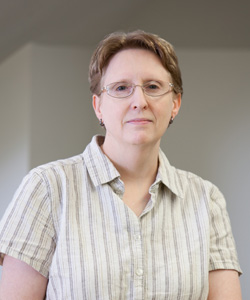As the U.S. struggles to control its burgeoning diabetes epidemic, a nationwide clinical trial seeks to determine the most effective combination of glucose-lowering medications. In the Bronx, the New York City borough most drastically affected by diabetes, researchers from Einstein and its University hospital Montefiore Medical Center are playing an active role in this investigation.

Jill P. Crandall, M.D.
The Montefiore Einstein team is part of a network of four New York City sites and 37 clinical centers nationwide taking part in the “Glycemia Reduction Approaches in Diabetes: A Comparative Effectiveness (GRADE)” study, supported by a five-year, $134 million grant from the National Institute of Diabetes and Digestive and Kidney Diseases of the National Institutes of Health (NIH). While the GRADE study network is being led by Dr. John Lachin (George Washington University) and Dr. David M. Nathan (Massachusetts General Hospital), Dr. Jill Crandall, Professor of Medicine (Endocrinology) and Director of the Diabetes Clinical Trials Unit and Dr. Diane McKee, Associate Professor of Family and Social Medicine and Co-director of the Division of Research within Family and Social Medicine, will spearhead the trial in the Bronx.
According to Dr. Lachin, a primary goal of the GRADE study is to determine which of the drugs is most safe and effective in lowering and controlling blood glucose levels for a sustained period of time, as long-term blood glucose control can prevent or delay diabetes-related complications such as circulatory system damage, amputations and eye and kidney impairment.
“While there are an increasing number of drugs available to treat type 2 diabetes, studies to compare the various options haven’t yet addressed which approach will be successful over the long term,” said Dr. Crandall. “In addition, little information is available as to whether the substantial cost of these new drugs is worth the expense.”
“As primary care providers in the Bronx, we each identify several new cases of diabetes every month, and frequently face the decision of how to control blood sugar when one medication on its own is no longer doing the job,” said Dr. McKee.

Diane McKee, M.D.The study will randomly assign a total of 5,000 patients recently diagnosed with type 2 diabetes to take one of four medications that lower blood glucose. Three of the medications being studied increase insulin levels: sulfonylurea, which raises insulin levels directly; DPP-4 inhibitor, which indirectly heightens insulin levels by increasing the effect of a naturally occurring intestinal hormone; and GLP-1 agonist, which increases the amount of insulin released in response to nutrients. The fourth medication in the trial is a form of long-acting insulin. In addition to the randomly assigned medication, each of the 150+ indiviudals taking part at the Montefiore Einstein trial site will receive metformin, the most commonly prescribed anti-diabetic drug worldwide.
Type 2 diabetes is generally a progressive disorder, and more aggressive treatment (with more types of drugs) eventually becomes necessary in order to adequately control blood sugar. “Metformin is a very effective, safe and inexpensive drug for treating type 2 diabetes,” Dr. Crandall said. “However, over time, most patients end up needing two or more drugs to control their diabetes. Knowing which additional therapy offers promise will expand our arsenal in helping patients control their blood sugar levels.”
“Results from the GRADE study could offer much-needed evidence to help physicians select a second medication best suited to a particular patient,” added Dr. McKee.
The Diabetes Research Center has a long history of involvement in landmark diabetes trials, beginning with the Diabetes Control and Complications Trial (DCCT) in 1983. Additionally, the center’s location in the Bronx has been influential for success in enrolling a substantial number of Hispanic and African American patients in national trials. The GRADE study site is a cooperative effort of the NIH-funded Einstein Diabetes Research Center and the New York City Research Improvement Networking Group (NYC RING), a practice-based research network sponsored by the Department of Family and Social Medicine and consisting of community-based primary care practices located throughout the Bronx, lower Westchester County and Manhattan. NYC RING is one of the few practice-based research networks that focuses on the urban underserved.
“Results of this study will help us tailor treatment and improve blood sugar control for more people, avoiding some of the more preventable complications that can profoundly affect peoples’ lives, while also gathering important information about outcomes that patients care about, such as side effects and overall quality of life,” Dr. McKee said.
“We’re very pleased to have been selected for this study,” said Dr. Crandall. “The chance to participate in these important studies is a benefit we extend to our patient population, while the opportunity to study the many ethnic groups who make their homes in the Bronx can greatly aid the scientific research community.”